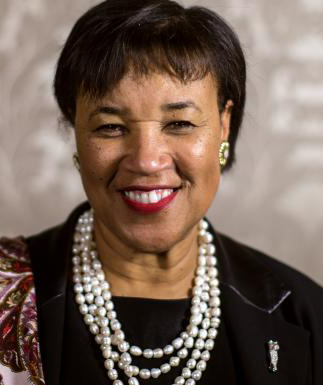Commonwealth Secretary-General, Patricia Scotland, has outlined a framework in an effort to assist member countries in their investigation and prosecution of corruption offences, which is estimated to cost the global economy some US$2 trillion yearly.
According to a Commonwealth Secretariat release on Tuesday, this framework known as the Commonwealth Anti-Corruption Benchmarks is currently being developed by the Secretariat in consultation with member countries and would provide clear steps to promote integrity and combat graft within public and private sectors.
The Secretary-General made this disclosure at the fifth annual regional meeting of the Caribbean heads of anti-corruption agencies which is being hosted in the Cayman Islands from June 3 – 7.
“This package consists of a set of 22 benchmarks, covering topics from sanctions for corruption offences to investigating and prosecuting authorities, and from political lobbying to the disclosure of asset ownership. Each benchmark is defined by a principle and contains detailed guidance for meeting the set level of achievement. The principles and guidance are consistent with international standards, and if adopted would go further in covering other areas of concern not previously addressed,” the Secretary-General was quoted as saying.
This is the first such framework to cover all areas of the public and private conduct. It is expected to be considered by the Commonwealth Heads of Government in Rwanda next year.
At present, five Commonwealth Caribbean countries – The Bahamas, Barbados, St Vincent and the Grenadines, Dominica and St. Lucia – rank among the 50 least corrupt countries in the world, while none sit among the top 20 most corrupt.
According to Scotland, “The Commonwealth’s leadership and cooperation contribute to this [achievement], which brings member countries together, recognising that we are all at our strongest when we combine our efforts. The Commonwealth has been active in providing technical assistance and development support for national anti-corruption agencies to build their effectiveness in dealing with graft.”
The Secretary-General stressed that the work of anti-corruption agencies must continue with renewed vigour in order to fully achieve the 16 Sustainable Development Goals (SDGs) and also referred to the Commonwealth’s practical toolkit designed to help countries plan, track and coordinate SDGs implementation more effectively.
The Cayman Islands meeting brings together the Caribbean’s most senior officials tasked with thwarting illicit financial flows. This year’s focus is based around the theme, ‘Transforming words into action: revitalising the fight against corruption’. Panel discussions will cover areas such as corruption in sports, modernising legislative frameworks, the investigative battle against corruption and new technologies to combat graft. In addition, officials will review their national anti-graft efforts, exchange experiences and improve understanding of the advanced techniques and procedures. They will enhance their knowledge in forensics, financial accounting and asset tracking, as well as prosecutions, public awareness and prevention.
Adviser and head of the Commonwealth’s public sector governance unit, Dr Roger Koranteng, predicted, “Anti-graft bodies in the Commonwealth Caribbean will emerge from the meeting as strong watchdog institutions with a more coherent response to corruption and transparency problems in the region to achieve the SDG 16.”
The Commonwealth has organised the regional meeting in collaboration with the Cayman Islands’ Commission for Standards in Public Life and the Association of Integrity Commissions and Anti-Corruption Bodies in the Caribbean, the release added.





